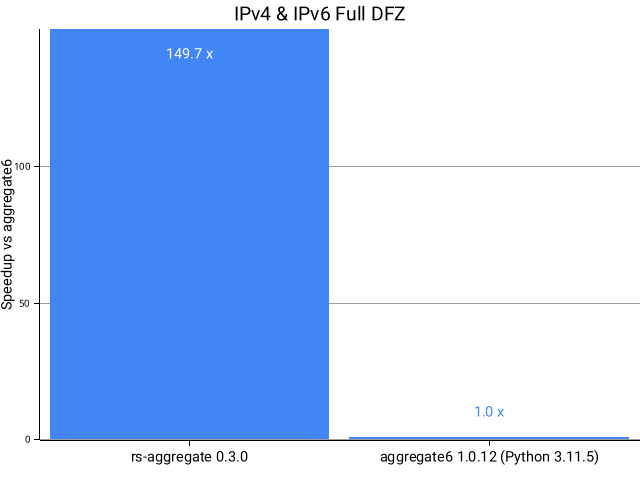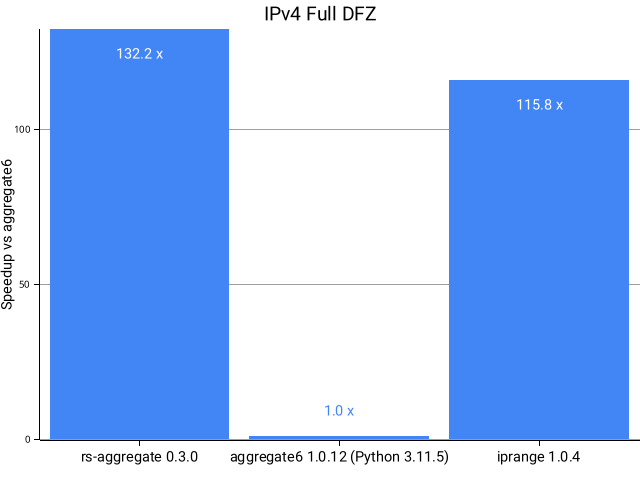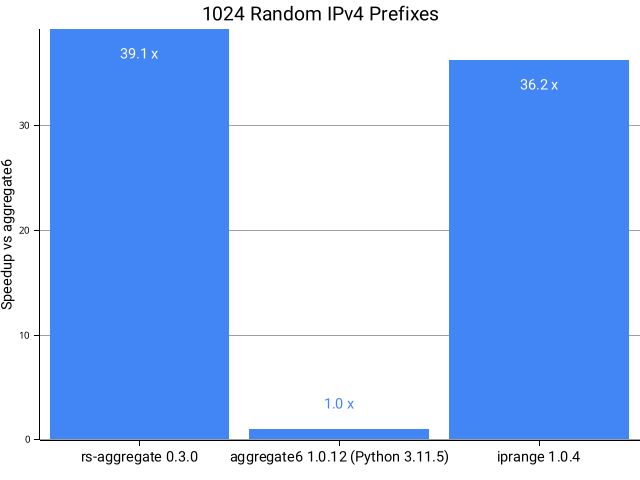mirror of
https://github.com/ktims/rs-aggregate.git
synced 2026-02-21 14:54:54 -08:00
fc24a5db72e90bbec5f525fcc315d78901657ba8
rs-aggregate
rs-aggregate will aggregate an unsorted list of IP prefixes
Intended to be a drop-in replacement for aggregate6 with better performance.
Takes a list of whitespace-separated IPs or IP networks and aggregates them to their minimal representation.
Installation
rs-aggregate is built statically. CI-built binaries can be found in the GitHub
releases for most common platforms. Simply download the appropriate binary and
place it in your path.
It can also be installed via some software management tools:
FreeBSD
pkg install rs-aggregate
Cargo
cargo install rs-aggregate
Known differences from aggregate6
-m/--max-prefixlensupports different maximums for each address family as ipv4,ipv6 format. A single value is also supported and has the same behaviour asaggregate6(apply the same maximum to both address families).-vverbose dump is not supported- Truncation errors (when host bits are set without the
-tflag) are printed based on the parsed address, ie. always in CIDR format, whereasaggregate6prints errors based on the input.
Performance
Performance comparison of rs-aggregate vs aggregate6. A speedup of >100x is achieved on DFZ data.
Full DFZ (1154968 total, 202729 aggregates):
IPv4 DFZ (968520 total, 154061 aggregates):
1024 random prefixes (startup time):
Languages
Rust
100%


